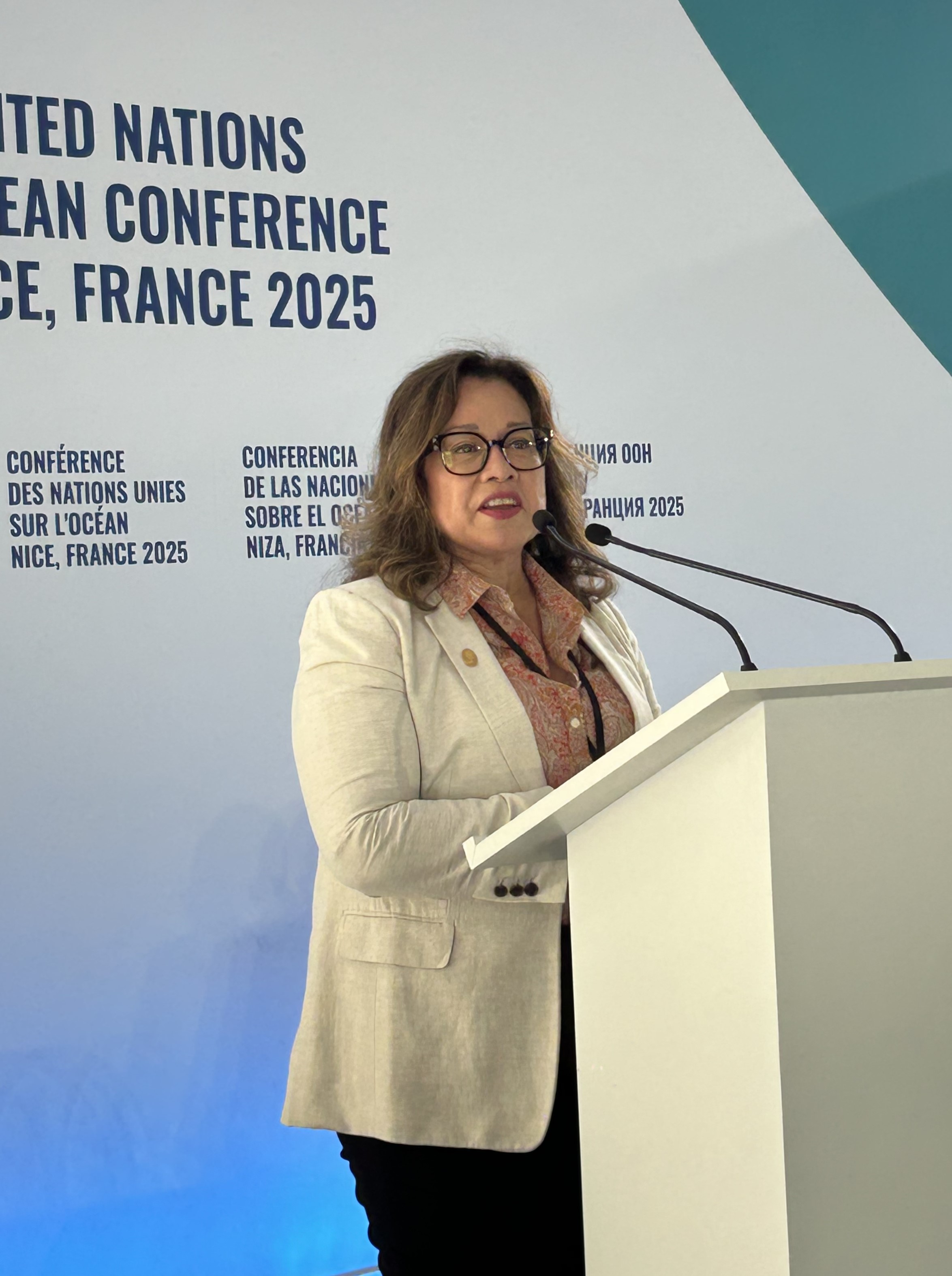UN Ocean Conference (UNOC-3): Side event on Achieving SDG14 Through SDG16: The Role of Criminal Justice and Law Enforcement in Ocean Governance and Protection
Statement by CITES Secretary-General Ivonne Higuero
10 June 2025, Nice, France

Excellencies, distinguished delegates, partners, and friends,
Warm thanks to INTERPOL and the United Nations Office of Drugs and Crime or UNODC, for hosting this important side event and inviting me to address you today.
It is a privilege to speak on a topic that lies at the heart of both global conservation and global governance — the vital link between SDG14, which focuses on conserving and sustainably using the oceans and marine resources, and SDG16, which promotes strong institutions, justice, and the rule of law. To make real progress in ocean conservation, we must also advance justice, rule of law, and institutional capacity.
As a global treaty that regulates international trade in over 40,000 species of wild animals and plants, CITES plays a critical role at the intersection between species conservation and sustainable use. With its global permit system implemented by the185 Parties to the Convention, CITES aims to ensure that trade in wildlife is legal, traceable, and sustainable.
To date, more than 2,000 marine species are included in the CITES Appendices. Recent CoPs have seen a growing number of commercially important marine species added to the scope of the Treaty. CITES covers marine species originating not only from jurisdictional waters but also from Areas Beyond National Jurisdiction, through provisions on Introduction from the Sea.
As CITES marks 50 years since its entry into force this year, its role in promoting sustainable use and conservation of marine biodiversity remains more relevant than ever.
CITES contributes to combating wildlife crime, which affects marine species such as European eels, corals, marine turtles, seahorses, sharks and rays, and this illegal trade is increasingly linked to cross-border organized networks, financial crime, and corruption.
For example, the illegal trade in totoaba, a fish endemic to Mexico's Gulf of California and illegally traded for its swim bladder, has driven harmful fishing practices. The gillnets used not only capture totoaba but also result in the bycatch and death of vaquitas. The vaquita, one of the world's rarest marine mammals, is now on the brink of extinction.
To address this situation, CITES Parties took targeted measures. The Conference of the Parties adopted decisions urging range and consumer States to take immediate action to prevent illegal fishing of totoaba and protect the vaquita.
But no single entity can tackle illegal wildlife trade alone. The CITES Secretariat works with partners to combat wildlife crime— a crime that crosses national borders and involves complex networks of range, transit, and consumer countries.
Established in 2010, the International Consortium on Combating Wildlife Crime (ICCWC), delivers a coordinated global response to wildlife crime. It brings together the CITES Secretariat, UNODC, INTERPOL, the World Customs Organization, and the World Bank, to support national authorities in investigating and prosecuting wildlife crime, including the illegal trade in marine species.
For example, in the case of totoaba trafficking, under the ICCWC framework, the CITES Secretariat, INTERPOL, and UNODC supported the organization of a closed working group of enforcement authorities with affected range, transit, and consumer countries. This initiative has supported enhanced collaboration on totoaba trafficking and led to the identification of follow-up actions and joint initiatives.
Regarding SDG16 CITES contributes to Target 16.5 on corruption and bribery reduction, through a resolution on Prohibiting, preventing, detecting and countering corruption. The Resolution urges Parties to adopt anti-corruption measures and coordinate efforts under CITES to curb illicit trade and strengthen governance. Parties also agreed to work together to reduce demand, disrupt illegal supply chains, and improve traceability.
Several targeted initiatives are underway in the lead-up to the 20th meeting of the Conference of the Parties (CoP20) that will take place from 24 November to 5 December 2025 in Samarkand, Uzbekistan. These include proposals for new or amended Resolutions on key species such as marine turtles and eels, as well as a joint study between the CITES Secretariat and UNODC on the scale and nature of illegal trade and enforcement responses concerning seahorses.
As we look to the future, let us strengthen the institutions that defend our oceans, empower the frontline officers who implement the law, and reaffirm that environmental conservation is inseparable from justice and peace.
The CITES Secretariat stands ready to support all Parties in translating these principles into action — because achieving SDG14 through SDG16 is not just a policy goal; it is an imperative for the planet.
Thank you.
____________________
Learn more about the UN Ocean Conference 2025 here.